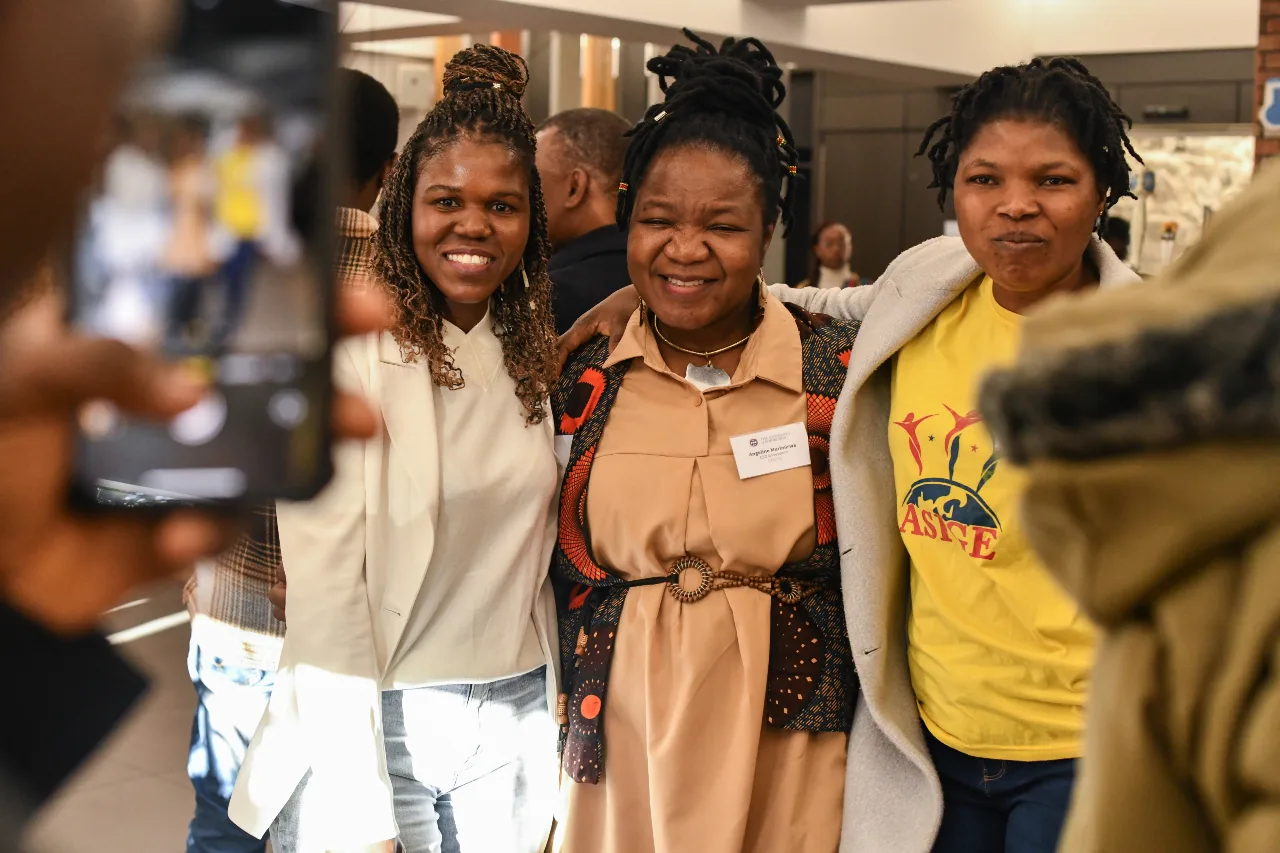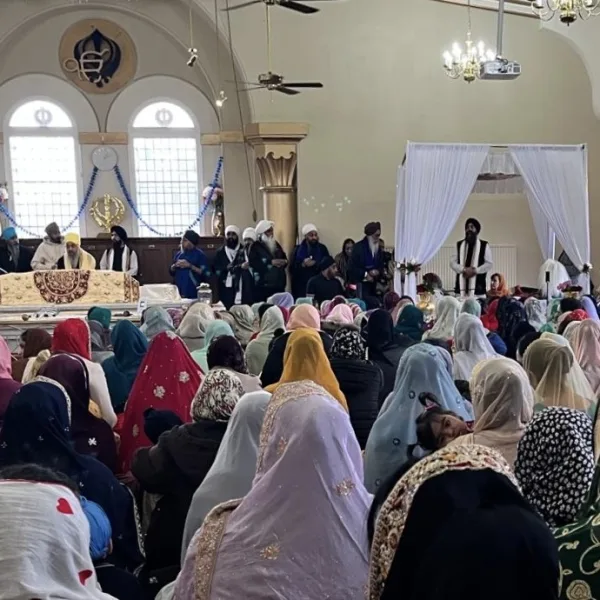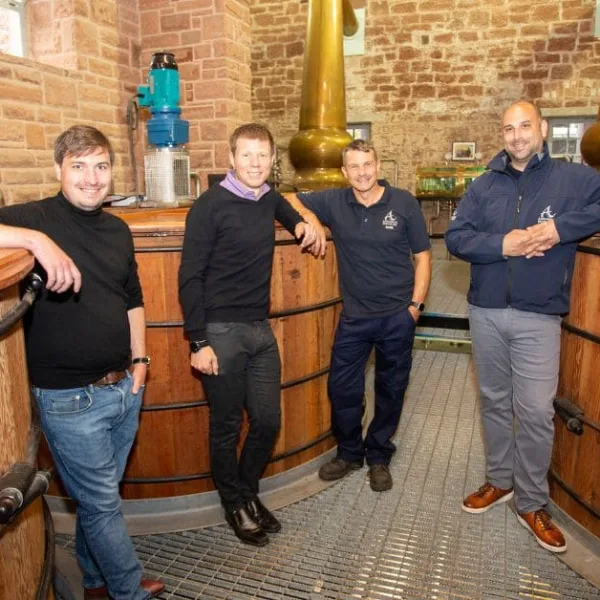For the last nine years, the University has worked in partnership with the Mastercard Foundation to deliver a transformative initiative centred on creating opportunities for talented young people with exceptional academic and leadership potential from across Africa.
Now working with a renewed focus on sustainability, the Mastercard Foundation Scholars Program advocates for sustainable social and economic change by supporting young learners, encouraging innovation through educational opportunities that can deliver lasting impact.
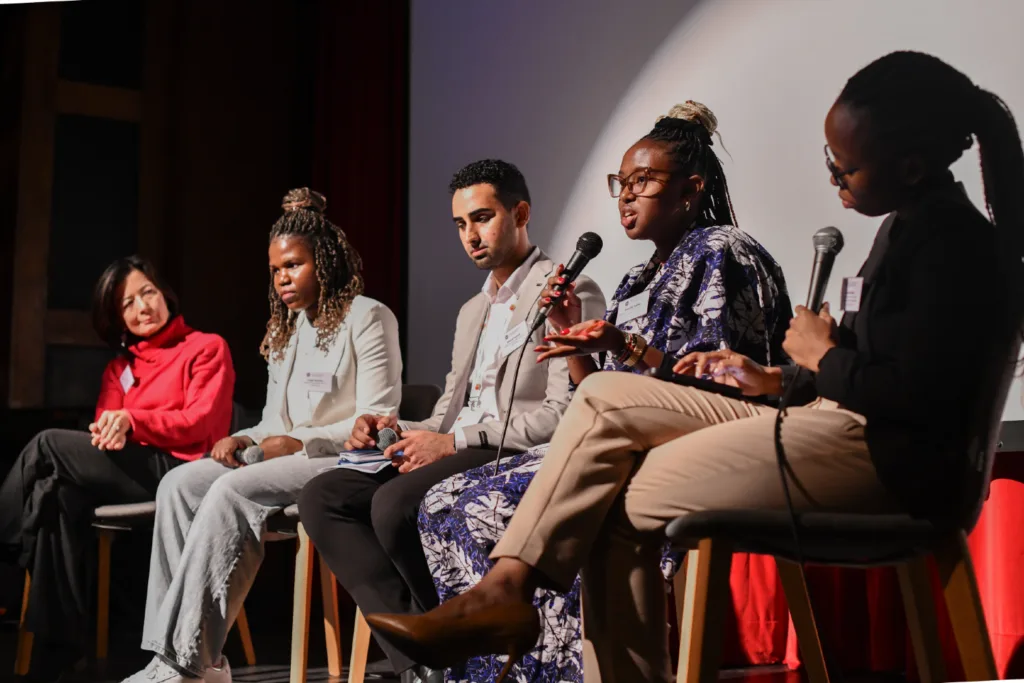
Innovation through support
Since its inception in 2016, the Mastercard Foundation Scholars Program has been instrumental in empowering young African leaders and supporting students. It was launched as part of the Mastercard Foundation’s broader commitment to providing access to education for talented young people who are unable to continue in education or professional development due to social or financial barriers to their education.
The University began its partnership with the Mastercard Foundation in 2016 and has since delivered scholarships for over 200 students from 26 African nations. Reeta Roy, President and CEO of the Mastercard Foundation, who has led the organisation since 2008, reflected on how and why it chose to work with the University of Edinburgh:
“We were looking to work with like-minded institutions that share the same sense of values and that had an openness to the world and especially to Africa, both a hospitable, warm, supportive place, and one which could provide high quality education. And so, we found a common spirit in Edinburgh. The first years of this partnership were about bringing young people to Edinburgh to study and to see how that partnership would evolve. Through this we have found a deep level of collaboration and commitment.”
The Mastercard Foundation Scholars Program was created to specifically support students who demonstrated strong leadership potential and who also imbued a deep sense of commitment to making a difference in their communities, with a desire to grow and share their skills. By offering a combination of financial support, mentorship, and leadership development, it sought to remove barriers to higher education while equipping Mastercard Foundation Scholars with the skills necessary to drive social and economic progress in their home countries.
Real world impact through sustainable learning
Forget Shareka is from Zimbabwe. She came to Edinburgh in 2020 to study at the University of Edinburgh’s Business School as a Mastercard Foundation Scholar, graduating with an MSc in Entrepreneurship and Innovation in 2021. Growing up in a rural community with limited access education there, Forget later joined a secondary school under the sponsorship of international NGO CAMFED, a pan-African movement with a mission to transform the way girls’ education is delivered. Following school, she studied Agricultural Science in Costa Rica, before coming to Edinburgh to continue her studies and earn her master’s degree:
“When I came to Edinburgh, I was determined to achieve a better education and to gain the skills needed to amplify my community development work and to build my business.”
“In fact, I gained so much more than this: support to grow the business, global exposure, an introduction to sustainability which has shaped my career and networks which have become my support system.”
Since graduating from Edinburgh, Forget has forged her career in sustainable agribusiness, founding new initiatives and spearheading the implementation of practical solutions for communities and small enterprises working in the climate innovation field, both in Scotland, where she is now based, and at home in Zimbabwe. She continues to use her experience to support development opportunities for women and girls, for example, co-developing an award-winning smart climate agriculture guide which was used by CAMFED to train more than 100,000 women and create employment for a further 770 across Zimbabwe, Zambia, Tanzania, Malawi and Ghana.
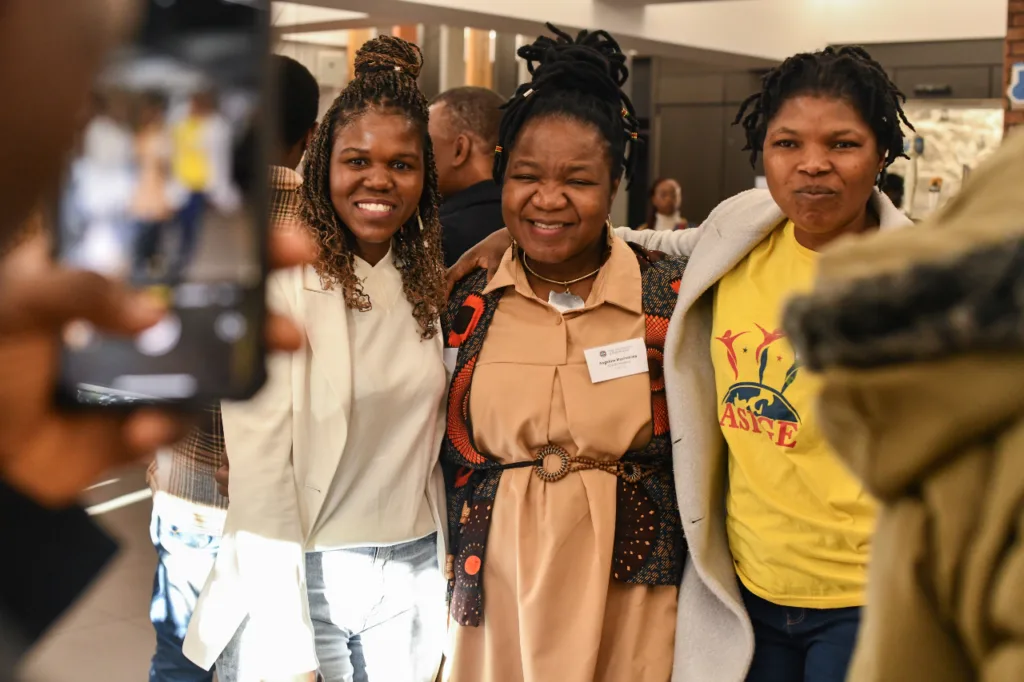
held at the University of Edinburgh last year (photo Ellie Morag).
A trailblazing activist advocating for greater access to education for young women, Angie Murimirwa is CEO of CAMFED and was recently listed by TIME magazine in its 100 most influential people in the world list 2025. Angie has worked tirelessly since the 1990’s to create not only educational opportunities for young women, but pathways for their experience and opinions to be heard by policy makers, higher education institutions and industry. She has worked alongside Forget and echoes the need for direct support and opportunities for girls from communities like hers:
“We go to communities with the poorest and lowest educational outcomes for girls and to be able to provide an opportunity for girls in those communities to go to school and become leaders in their communities and beyond. We work on initiatives like the Mastercard Foundation Scholars Program, and for us, it’s about prioritising the needs, aspirations, preferences of girls and young people coming from marginalised backgrounds – and how we best serve them.”
“And that’s one of the key values we align very well with this program – it is about service, but it’s also about impact and co-creation in the real-world and how that can then transition into sustainable change for communities.”
Second steps
Building upon its achievements and learnings, the Mastercard Foundation Scholars Program at the University entered its second phase in 2023, with a refined focus on climate leadership, entrepreneurship and digital education, empowering young Africans to become catalysts for change in climate justice and sustainable development.
The Mastercard Foundation Scholars Program aims to support a further 800 postgraduate students to undertake a range of degrees focusing on sustainability by 2030, in addition to a further 24 Mastercard Foundation Wits-Edinburgh Sustainable African Futures Fellows (WESAF) supported through a collaborative partnership with the University of Witwatersrand (Wits) in South Africa.
A key element of this new focus on sustainability is Climate Leadership Programme, designed to develop a new generation of young leaders who can drive sustainable transitions in their home countries, and through recognition that African nations will be disproportionately affected by climate change, despite having contributed the least to global carbon emissions.
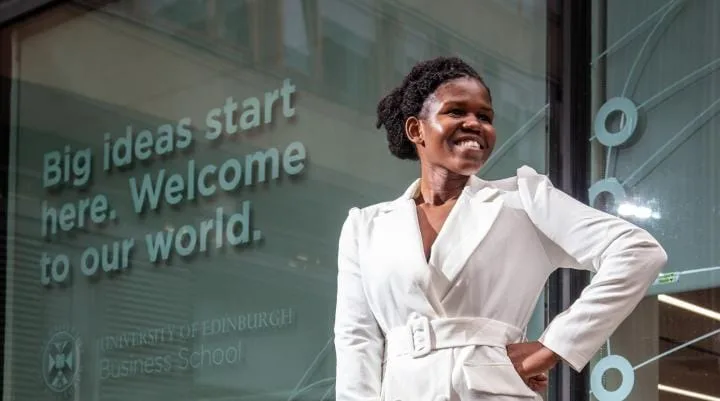
Every student studying at Edinburgh on a Mastercard Foundation Scholars Program scholarship takes part in sustainability-related programming, engaging in academic training, leadership development and hands-on projects aimed at addressing urgent environmental challenges. Mastercard Foundation Scholars are encouraged to apply their knowledge to real-world scenarios, ensuring that their learning translates into meaningful action in their home countries, with knowledge and new skills shared locally.
In September 2023, the University welcomed its first cohort of sustainability-focussed Mastercard Foundation Scholars, following a recruitment process that also prioritised underrepresented groups, including women, refugees and young persons living with disabilities. The aim is that they graduate from Edinburgh empowered to lead transformative change across sustainability-driven management of social and economic development that speaks directly to pan-African issues derived from the climate crisis.
Sustainable learning online and in person
Beyond individual scholarships, the Mastercard Foundation Scholars Program also encompasses a range of initiatives aimed working in partnership with leading HEIs across African to advance African-led responses to the climate crisis.
One of these online learning initiatives is the Wits-Edinburgh Sustainable Africa Futures Doctoral Programme (WESAF), designed and delivered in partnership with Wits University, to provide research training that allows post graduate students to undertake interdisciplinary doctoral research focused on sustainability challenges across the African continent. This blended learning model allows students to first complete a master’s Research degree, followed by an online joint PhD with Wits.
Through its cohort model and strong focus on advanced research design and methods training, the WESAF programme is developing a dynamic network of African research leaders dedicated to advancing sustainability solutions shaped by Africa’s own priorities. Though largely delivered online, the master’s and PhD programmes also incorporate some in-person elements, including sustainability schools — intensive sessions to deepen expertise in sustainability research — held in South Africa, as well as contact sessions in Edinburgh and workplace internships.
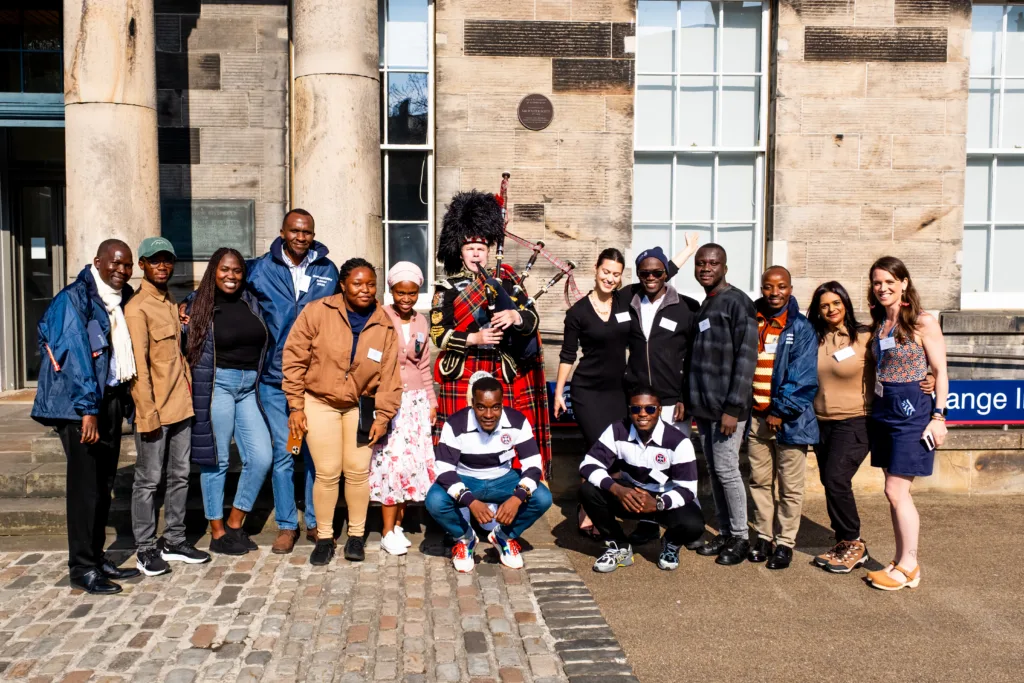
the Sustainability School in April 2025 (photo Nico Utuk).
Until this year the sustainability schools had been held at Wits University, however, in April 2025, the gathering was hosted in Edinburgh, with Mastercard Foundation WESAF Fellows, supervisors, academics and partners gathering at the University for a 10-day programme of cross-disciplinary learning and sharing, delivered in collaboration with a range of schools and departments.
As part of the programme, Mastercard Foundation WESAF Fellows showcased their research progress, explored future career paths, while building interdisciplinary networks. Activities and workshops have been designed to interact with disciplines and faculties beyond traditional sustainability or climate-focussed subjects for a more holistic and diverse learning experience. For example, sessions included workshops with entrepreneurial experts at Edinburgh Innovations – the University’s commercialisation service created to connect research to industry – and curators at the Talbot Rice Gallery, a leading Scottish contemporary art space located within the University’s Old College.
Amy Mutua is a PhD student at the University of Wits in South Africa, whose research considers the role and state of innovation in African cities. She is also a Mastercard Foundation WESAF Fellow and in April this year took part in a special sustainability school held in Edinburgh.
“I think I can speak for all Mastercard Foundation WESAF Fellows when I say that the program has really been transformative for all of us.”
“Firstly, at an individual level, so personally, professionally, academically. But also, we’re beginning to see some change at an institutional level as well…. it is stressed to us over and over again about the importance of interdisciplinarity. That focus has pushed a lot of us who typically work in siloed disciplines to consider new perspectives, new approaches. And that mindset shift has a positive ripple effect – it changes not only our own research, but also how we teach, how we mentor other students, and how we approach a whole range of institutional practices.”
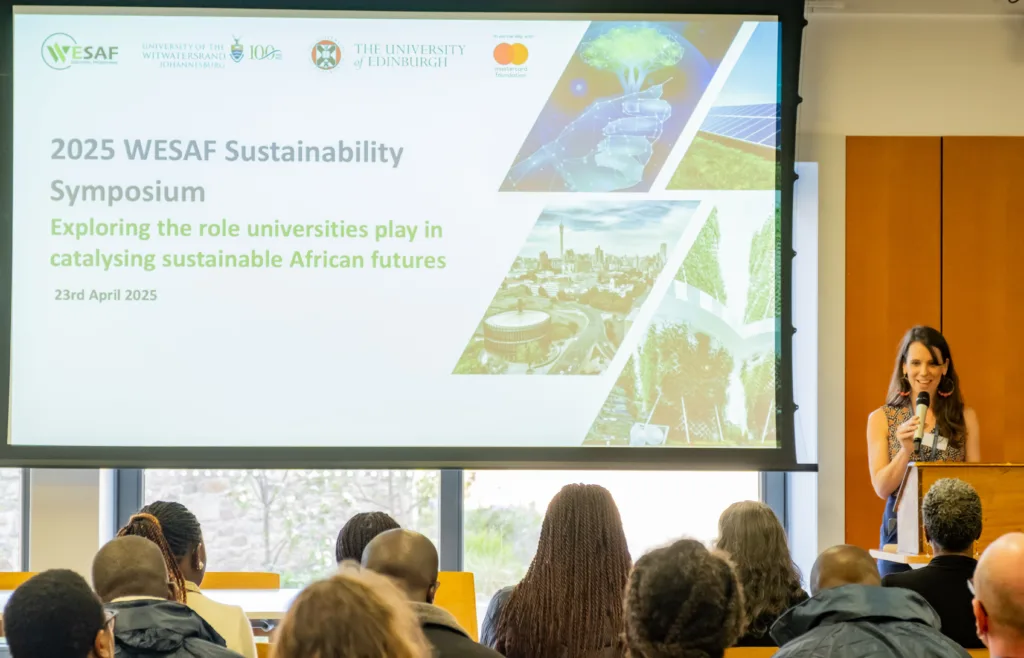
2025 WESAF Sustainability Symposium (photo Nico Utuk).
Evariste Nsabimana, a WESAF Fellow and an Assistant Lecturer at the College of Medicine and Health Sciences at the University of Rwanda, participating in the Sustainability School, shared:
“Well, this is the most enjoyable programme ever! Sustainability schools like this have life-changing for me as an early career researcher and academic, because they are designed in such a way that allows both interdisciplinary collaboration and creates valuable networks for career growth.”
Fellow sustainability school participant, Brendah Jeptoo Kemboi, currently teaching in the department of chemistry and Biochemistry at Moi University in Kenya, commented on the wider benefits of WESAF:
“The program has been a game changer to me. It has offered both mentorship and also social, networking and professional development opportunities, like the sustainability school, something that would otherwise not be possible in other programs, as well as the flexibility of studying online.”
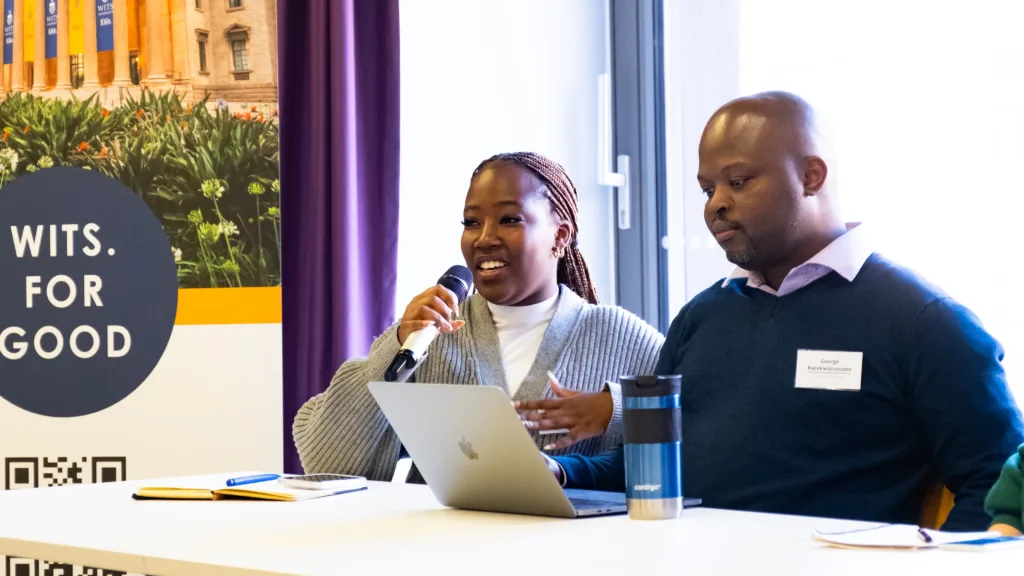
2025 Sustainability School taking place at the University (photo Nico Utuk).
Another core benefit of working collaboratively between the organisations taking part in WESAF is the development of practices in the faculties and universities at which the Mastercard Foundation WESAF Fellows are based, by broadening their access to different ways of working, research practices and modes of critical thinking, in an exchange and enhancement of working practice at local levels. Evariste adds:
“My home institution has already started to harvest the fruits of this partnership and the research skills that I have learnt from taking part. So far, I have advocated for the creation of a research centre for undergraduate medical students, and I am looking forward to supporting this move forward at home in Kigali with the university”.
Looking to the future
The Mastercard Foundation Scholars Program continues to support its Mastercard Foundation Scholars Program Alumni through an engaged network. Graduates are already making significant contributions across public health, education, technology, and environmental sustainability both at home and all over the world. Over the long term, the Mastercard Foundation Scholars Program aims to foster collective impact, empowering Mastercard Foundation Scholars not just to succeed individually but to drive sustainable development within their communities and countries.
By sharpening its focus on climate leadership, digital education, and entrepreneurship, the Mastercard Foundation Scholars Program is becoming a catalyst for transformative change, expanding access to higher education for young Africans who might otherwise be excluded. Through strategic partnerships, a commitment to inclusivity, and a strong emphasis on leadership development, the Mastercard Foundation Scholars Program is helping shape Africa’s future – one young person at a time.

